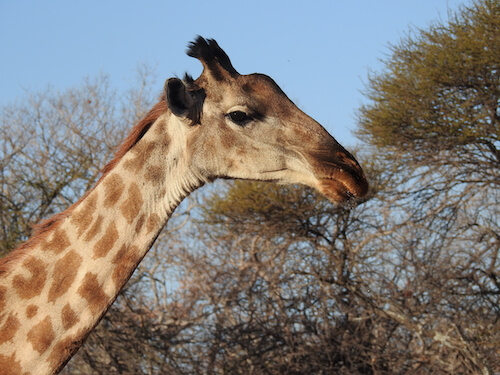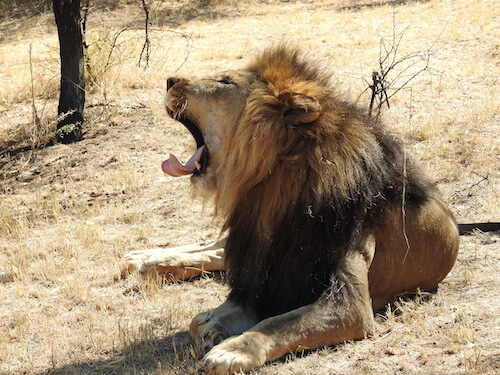 You can see the staff at Safari Plains lodge are smiling even though they’re wearing masks. Their grins crinkle the material and light up their eyes as they welcome their first guests in five long, lonely and financially disastrous months.
You can see the staff at Safari Plains lodge are smiling even though they’re wearing masks. Their grins crinkle the material and light up their eyes as they welcome their first guests in five long, lonely and financially disastrous months.
This small lodge in Mabula Private Game Reserve in Limpopo was one of the first to reopen, bravely bringing back all 43 staff even when interprovincial travel was still banned and its 20 guest suites were mostly empty.
The lockdown has been a brutal, bewildering and lonely time of pure survival. A tactic to save our lives that’s felt like slow death anyway. Now, standing on the deck at Safari Plains, I feel pure joy surging though me.
I breathe the scent of wild sage and hear birds squabbling raucously. I can feel all five senses reawakening, and a sixth sense reminding me that there’s an enormous difference between being alive and really living.
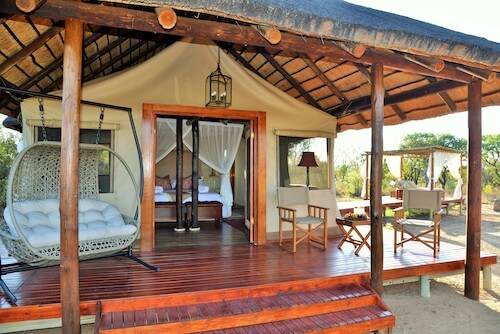 Senior Safari Guide Elias Mangwane is also delighted to be back, with his spirit soaring as he reconnects with the animals and land that feed his soul. As a giraffe elegantly bends to drink from the waterhole in front of the lodge, I joke that we don’t need a game drive because the animals are coming to look for the long-absent humans instead.
Senior Safari Guide Elias Mangwane is also delighted to be back, with his spirit soaring as he reconnects with the animals and land that feed his soul. As a giraffe elegantly bends to drink from the waterhole in front of the lodge, I joke that we don’t need a game drive because the animals are coming to look for the long-absent humans instead.
When we set off in the Land Cruiser I’m bouncing with excitement, telling Elias I won’t even take impala for granted any more. Soon we find a cluster of tsessebes, enormous hippos lying on a riverbank to warm in the winter sun, a croc basking close by, and rhino standing in line like they’re posing for photos.
Elias talks with the relish of a man deprived of something he loves for too long, and that revival is reflected by all the staff. Barman William Tlhoele designed attractive alcohol-free cocktails during the national booze ban, chef Dion Andersen over-fed me with five months of pent-up creativity to express, and beautician Ester Makunyane eagerly flexed her fingers again to give a wonderful massage in the on-site spa. There’s also a good-sized swimming pool, a wine cellar, and day beds for lounging on outside each of the private suites.
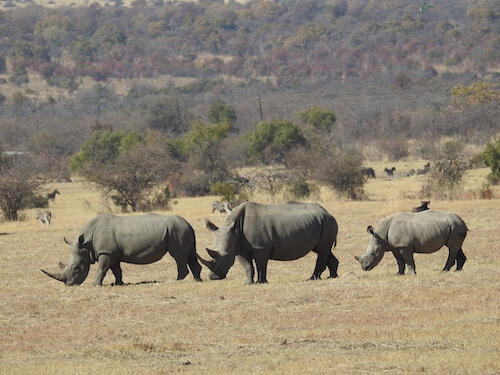 The lockdown triggered carnage for the travel trade, with the Tourism Business Council of South Africa reckoning that R748-million in revenue was lost every day, along with 600,000 jobs. It costs the country’s 496 private game lodges a staggering average of R500,000 each per month just to survive, so foreign guests are vital. But foreigners won’t be coming any time soon, so Safari Plains has slashed its rates to attract more locals to tide it over and keep its staff employed.
The lockdown triggered carnage for the travel trade, with the Tourism Business Council of South Africa reckoning that R748-million in revenue was lost every day, along with 600,000 jobs. It costs the country’s 496 private game lodges a staggering average of R500,000 each per month just to survive, so foreign guests are vital. But foreigners won’t be coming any time soon, so Safari Plains has slashed its rates to attract more locals to tide it over and keep its staff employed.
It now costs R2,890 per person sharing – not cheap, but that covers all meals, selected drinks and two safaris a day. Besides, the soul-restoring freedom of being out in the bush again feels priceless.
Resident manager Leon de Wit and his wife Hilda stayed on during the lockdown and used the opportunity for painting, varnishing and vehicle maintenance. In the absence of humans, monkeys cavorted on the sun-loungers and buffalo broke a fence to reach the irrigated grass. A leopard drank from the swimming pool, and one serious mishap saw a giraffe tumble on the wooden deck and flail around a while.
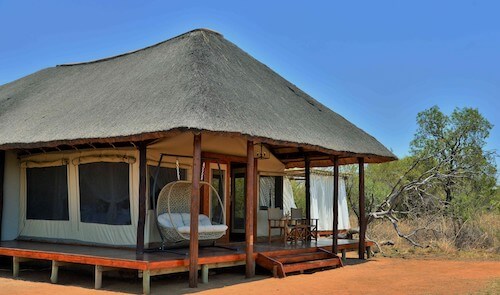 The biggest threat in the absence of humans is to the wildlife, with hungry communities tempted to snare for bushmeat and professional poachers enjoying the lack of human eyes around their hunting grounds. “Our biggest concern is our rhinos so our anti-poaching teams stayed here and were even more active than usual,” says Isiah Banda, Mabula’s assistant reserve manager.
The biggest threat in the absence of humans is to the wildlife, with hungry communities tempted to snare for bushmeat and professional poachers enjoying the lack of human eyes around their hunting grounds. “Our biggest concern is our rhinos so our anti-poaching teams stayed here and were even more active than usual,” says Isiah Banda, Mabula’s assistant reserve manager.
“Some of the neighbours experienced poaching and we got warnings that poachers may be active, but we were very lucky that we never experienced it. We didn’t close the reserve completely and send everybody home like other places did, so we were always here. And cameras all over our roads can identify vehicles that are suspicious.”
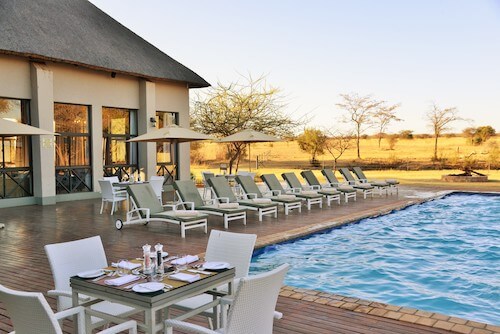 Now reclusive creatures like aardvark, aardwolf, porcupines and brown hyena are being seen more frequently around Safari Plains. Jackals are heard every night and bird life has increased exponentially, says Leon. “As soon as human behaviour slows down they become more confident because we are the apex predator.”
Now reclusive creatures like aardvark, aardwolf, porcupines and brown hyena are being seen more frequently around Safari Plains. Jackals are heard every night and bird life has increased exponentially, says Leon. “As soon as human behaviour slows down they become more confident because we are the apex predator.”
Interestingly, Isiah believes the animals not only notice the lack of humans, but actually miss us. “We’ve seen crocs walking on the roads during the day, which I’d never seen before, and cheetah coming to the lodge to find out why it’s so quiet. It’s a sign that the animals were bored,” he says. “It gave us chance to find out whether we are enemies and don’t like each other, but I’ve seen that animals miss people and people miss animals – we both miss each other.”
* Safari Plains is in Mabula Private Game Reserve in Limpopo. Family suites are available and kids up to five stay free. See www.safariplains.co.za; email res@extraordinary.co.za; or call 011-516-4367.
